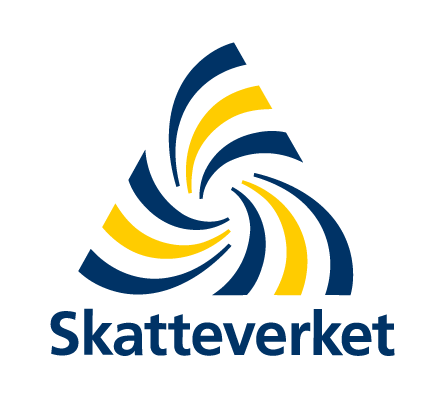As the second article in our series on starting a business abroad, we’ve brought you a country that’s terribly close to our hearts: Sweden. After Silicon Valley, the Swedish capital produces the highest number of unicorn companies per capita in the world. It’s not only famous for its renowned businesses, but for many inventions such as dynamite and the pacemaker, as well as being the home of the Nobel Prize and the world-famous ABBA. Sweden is also responsible for the world’s first virtual embassy: on 30 May 2007, the Swedes created a virtual replica of the Swedish embassy in Washington DC in the simulator game Second Life. Sweden is a hotbed of innovation and could be a great destination for your new business – read on and find out if it’s for you!
To read our previous article on starting a business in Estonia, click here.
Why Sweden?
 Besides the remarkable coastline, the archipelago and the magnificent green pine forests, Sweden is also a tempting destination because it is one of Europe’s flagships for a predictable business environment. Home to IKEA, Volvo, Ericsson, Spotify, and Klarna – to name but a few of the globally known companies – Sweden is also a popular hub for smaller businesses in the Nordic region thanks to its innovative and open economy. By virtue of coordinated governmental efforts over the recent decades, Sweden has become one of Europe’s biggest start-up-havens. Sweden being a popular choice for many people starting a new business is not, then, at all surprising.
Besides the remarkable coastline, the archipelago and the magnificent green pine forests, Sweden is also a tempting destination because it is one of Europe’s flagships for a predictable business environment. Home to IKEA, Volvo, Ericsson, Spotify, and Klarna – to name but a few of the globally known companies – Sweden is also a popular hub for smaller businesses in the Nordic region thanks to its innovative and open economy. By virtue of coordinated governmental efforts over the recent decades, Sweden has become one of Europe’s biggest start-up-havens. Sweden being a popular choice for many people starting a new business is not, then, at all surprising. Competitive
The World Economic Forum ranked Sweden as the 8th most competitive market in the world in their Global Competitiveness Report, while it finished 4th on IMD’s list this year.
Sustainable
The World Economic Forum ranked Sweden as the 8th most competitive market in the world in their Global Competitiveness Report, while it finished 4th on IMD’s list this year.
2nd Best Country for Business
Sweden is ranked 2nd on Forbes’ “Best Countries for Business” list
Innovative
Sweden is considered to be the most innovative nation in the EU, with the highest number of patents per capita
Ease of doing business
According to the World Bank Group’s Doing Business 2020 report, Sweden ranks 10th of 190 economies in terms of ease of doing business.
The advantages – and the challenges – of a Swedish company
Advantages
- Broad access to international/European markets and international investors: As the largest market in Scandinavia, Sweden is an ideal place for North-European activities, and a Swedish company can also offer a good reputational asset across the entire international market. Not just that, Sweden is one of the largest recipients of foreign investment in the world with relation to its size.
- Innovative market: Sweden’s reputation as a centre of innovation is reflected in its high rankings on the Global Innovation Index, the European Innovation Scoreboard and the Bloomberg Innovation Index. Sweden is also one of the world’s leading countries in terms of research and development (R&D) investment as a share of GDP with more than three per cent of GDP devoted R&D, with a focus on areas such as medtech, biotech and fintech.
- Transparency and a trust-based society: all social and business life is built on mutual trust and transparency.
- Life is almost entirely cashless, the authorities are typically helpful and communicative, their main goal being to resolve whatever issues are at hand. For example, if you happen to miss a deadline with the tax authority, chances are you will first receive a reminder to remedy the situation – rather than an immediate penalty.
- Companies have greater freedom to account for costs compared to many European countries.
- In the Swedish business world, the win-win principle is maximally kept in mind: the focus is on finding common ground, not just serving one’s own interests. “Gentlemen’s agreements” carry a lot of weight, written agreements are typically short, easily understandable, and the first draft you receive after a negotiation will actually contain what you agreed on.
- Corporate tax is below the EU average at 20.6%.
- More than 70% of the population (some statistics say 90%!) speak English fluently, thanks to which, there is generally no obstacle to using English when dealing with banks, authorities, or for administrative procedures.
Challenges
- Competition is very fierce in many areas due to the favourable economic environment, which is also reflected in the high standards in terms of quality.
- If you specifically want to sell your products/services on the Swedish market, then, regardless of the country’s level of digitalisation, it can be important to have a personal presence in the country. Of course, this also depends on the specific product or service, but the business culture and the Swedish social construct as a whole is based on mutual trust – which is easier to build face to face.
- While corporate tax is lower than the EU average, it might still be higher than in your home country.
- If you are also considering living there, and you are not familiar with life so far north, you will have to prepare for the following: in winter Sweden gets approximately 4 to 5 hours of sunlight – which can be problematic to many. On the other hand, the sun rises early in the summer, and it never gets really dark even at night.
- The aspects that we mentioned in our article on starting a business in Estonia apply here as well, i.e.,:
- If you do not have your own registered office in Sweden, you will have to pay for a registered office service, which increases the costs, but this is also the case for most European countries.
- If you buy a shelf company, you will not know the background, history or even the financial situation of the company. However, shelf companies are rarely the ideal solution – once you have seen how easy it is to set up a company you will understand why.
- If you are not familiar with Swedish law, you will find it harder to get by – this can, of course, be overcome with the right advisors.
- There might be higher tax rates than in your home country.
- You will be less familiar with a foreign market, so if you want to build your business there, you will, for example, need to learn the business culture but this is generally true on any international market.
The process of starting a business
There are two types of procedure for registering a company: paper-based or online. The online system intuitively guides you through the entire process, but you can only access it with one of the eIDs mentioned above. For that reason, in this article we will mainly focus on the paper-based process, while also highlighting a few things about the online procedure. Without an eID, both the registration and any subsequent changes take place on paper. Some of these changes are subject to a fee, others are free of charge – such fees are listed here. (Of course, you will always need to take into account the postage fee for paper-based administration.) To form a Swedish AB, you must first register it with Bolagsverket (the Swedish Companies Registration Office), and then with Skatteverket (the Swedish tax authority). Before starting the actual registration procedure, you can make your own checklist at this link (only available in Swedish), so you can easily keep track of what you need, and you will find helpful instructions as well.One of the most important and welcome pieces of news for many people is that in Sweden you can start an AB on your own, without any outside assistance: there is no need for a lawyer’s countersignature, notarial deeds or apostilles. Naturally, as we mentioned in our previous article, if you want to be sure of everything and want the process to be as efficient as possible, it is still worth consulting the right expert before you set up; but let’s get down to specifics.
1. Step one: Swedish Companies Registration Office, Bolagsverket

Registration fee: SEK 1,900 – 2,200 Time for incorporation: approximately 1 week from the day Bolagsverket receives the necessary documents (the total time largely depends on the bank). Bolagsverket updates the expected processing time on a regular basis, you can always check it out on this link.
First of all, the founders of the AB must formally decide to set up the company. Even one person alone can form the AB and the founders can be both individuals and legal entities.
The following two documents must be prepared and signed for the incorporation:
- Memorandum of Association (MoA, in Swedish: stiftelseurkund)
- Articles of Association (AoA, in Swedish: bolagsordning)
The MoA is proof of the founders’ intention to set up a company, which is why it is important that it is signed by all founders, even if they are not involved in the company’s management. It should include, among other things, the date of incorporation, the amount to be paid for each share, the amount of shares each founder will buy, the members of the board of directors, the name of the company, and other information about the company and its shares. You can find a more detailed description of the contents of the MoA here, and Bolagsverket has also published its own templates which are great tools to use. Always keep in mind that the templates contain the standard version of the document: as in other countries, it is possible to deviate on most points, but in this case the template may need to be significantly modified.
The AoA, in addition to the basic information about the company (e.g.,name, registered office, activities), contains, for example, the amount of share capital, the number of shares, the method of convening the annual general meeting, and other important information about the company and its management. In addition to the mandatory elements, the AoA may also be supplemented by other voluntary elements. You can find more information here or find a template for the template collection linked above.
If you have an eID, as mentioned above, you can complete this entire process online, including filling in the documents. If you do not, you will need to sign the documents on paper and send them to Bolagsverket – but you do not need to send them in as originals, certified copies will suffice, which you can read more about in the FAQ at the end of this article.
In general, Bolagsverket will accept proof of payment of share capital from any bank licensed in an EEA Member State – so even a bank in your home country. However, you might encounter an obstacle with a foreign bank: this certificate of payment of share capital is subject to strict formal requirements, which the bank must know in order to issue it properly, and they need to do so in Swedish. So, you can try banks in your home country, especially if you can find one with a partner bank in Sweden. However, over the longer term, it is advisable to sign up with a Swedish bank and open a bank account with them.
Unfortunately, or fortunately in the event that you want to get to know the country you’ll be working in – you won’t manage to open a Swedish bank account without a personal visit. While it has long been possible to open a personal account online in Sweden, this is only available to those who have a Swedish BankID – and even they have to open a business account in person. As an EU citizen, you shouldn’t have any particular problems opening a bank account, but it’s worth checking with your bank in advance – not only to make sure you have an appointment, but also to find out details such as what other documents they may require you to prepare, according to their internal rules. This could include a simple business plan, for which the bank will provide a template.
Once the number of the shares to be issued and how they will be distributed among the founders has been determined, everyone who subscribes to shares must sign a share subscription form (this can be a separate document or part of the memorandum of association). Interestingly, however, it is not a requirement that all founders subscribe to shares in the company – in such a case, the founder will not be a shareholder in the company, so evidently the possibility of a single founder will not exist.
Following the subscription, the consideration for the shares must be paid (this must be at least the nominal value of the shares, so the total consideration for all shares will equal the amount of the share capital at the very least – but it can be higher – in which case the remaining amount will go into the capital reserve and this must be specified in the memorandum of association). This can be done by making a cash contribution to a special bank account or by making a contribution in kind – the latter may involve various additional certification obligations, as in the case of most other countries.
In Sweden, the bank has a much bigger role than in some other countries when it comes to forming a company – which is why it is important to choose the right bank. Before you can register your company with the court, you need to open a bank account into which the share capital is transferred. After the payments have been made, the bank will issue a certificate (this is called a ’bankintyg’) which will show, among other things, that the share capital has been deposited. The certificate must be in Swedish and the original must be posted to the Companies Registry. In the case of online incorporation, the bank contact person must be specified during the process and the bank will issue the certificate electronically and send it directly to the court.
Once you have completed the above steps and have the bank certificate in hand, you should formally apply to register the company with Bolagsverket. The online service will guide you through this process, so there shouldn’t be any particular difficulty there. However, if you register on paper – which is more likely – you will need to complete, print and sign this form. At the end of the form, you will find instructions on how to fill it in, and a list of documents to attach (e.g.,the MoA, the AoA, the certificate from the bank, and personal documents relating to the management – more on the latter later). The online service is only available in Swedish, but the linked form is bilingual (Swedish and English) with English instructions for filling it in – you do have to complete it in Swedish, but there are few fields where you need to write full sentences in Swedish, so as mentioned above, you should be fine if you only know English.
It is important that the application for registration be received by Bolagsverket no later than 6 months after the signing of the memorandum of association. It is also advisable to do this as soon as possible, as the company does not have legal personality before registration, so any liabilities arising from transactions entered into in the name of the company before that date are the joint and several liability of the individuals who participated in the transaction – this liability may be transferred to the company after registration.
Registration currently costs SEK 1,900 for online registration and SEK 2,200 for paper registration.
If everything is found to be in order, Bolagsverket will register the company and send you a certificate electronically to the email address you provided on the above form. However, the process does not stop there, you will have to deal with both the tax authority and Bolagsverket, but from this point onwards the company is a legal entity and you can start operating.
2. Step two: tax authority, Skatteverket
 Time period: 1-2 days
Despite AB having been granted legal person status through the Bolagsverket registration, in order to actually begin business operations, the company has to be registered with the tax authorities. If you use the online registration procedure, then the system will guide you through this step as well, but if you choose the paper-based option, then you will have to get through the tax-related registration separately.
This registration is necessary, among other things, in order to be able to pay contributions for your employees as well as VAT, and the company will also receive its tax number from the tax authority.
Time period: 1-2 days
Despite AB having been granted legal person status through the Bolagsverket registration, in order to actually begin business operations, the company has to be registered with the tax authorities. If you use the online registration procedure, then the system will guide you through this step as well, but if you choose the paper-based option, then you will have to get through the tax-related registration separately.
This registration is necessary, among other things, in order to be able to pay contributions for your employees as well as VAT, and the company will also receive its tax number from the tax authority. The SNI is the system used in Sweden for the classification of business activities. You must enter this code when registering with the tax authorities – see below in the section about the specifics for more details.
Entrepreneurs who conduct individual, sole trader, business activities are usually approved for F-tax. An approval for F-tax means that it is the entrepreneur himself/herself who is responsible for paying taxes and social security contributions (deductibles) on compensation for work performed.
Read more about F-tax and the conditions for approval here.
As a general rule, if you want to sell goods or provide services that are subject to VAT, you are obliged to register as a VAT payer.
An exception to this is if your turnover excluding VAT for the first tax year does not exceed SEK 80,000 – in which case, if other conditions are met, you may choose not to register as a VAT payer.
Read more about VAT registration and exemptions here.
When you hire someone, you must submit a notification to Skatteverket so that you can be registered in the Employer Register.
When you are registered as an employer, you must report and pay employer contributions and deducted tax each month.
You can read more about this here.
As to which specific tax and other categories your company needs to register for, it’s definitely worth consulting a Swedish accountant, but the process of registration itself is straightforward and you can do it yourself by filling in this form – although you will need some knowledge of Swedish or at least a good translator program (we recommend DeepL).
The specifics of incorporation
After an overview of the process itself, it is important to mention the main points to consider before or during the incorporation process. In many countries, these follow the same logic, but we will briefly cover the most important ones from a Swedish perspective, with tips.
Fundamentals
Tips
Name
The company name can only contain Latin letters, no special characters are permitted.
The name must include the name ‘aktiebolag’ or the abbreviation ‘AB’.
The name of the company must be distinctive and unique, i.e., it must not overlap with other registered, existing Swedish companies and trademarks. In addition, it is not sufficient for the company name to merely describe the activity carried out by the company: it is essential to have a unique identifier, a unique element that makes the company name original.
On the Verksamt page, you can get help in choosing a name with various tips, and you can search for company names to see if there is already a company with a similar name. You can also search for a company name on this site – here you can also look up other information about companies.
It is also worth checking the availability of the domain and, if you are planning to do so, of the various social media accounts with the planned name, and even registering them right away, so that you don’t find out later that they are already taken.
There are also rules on the information to be included on the website, which you should pay attention to, because if your website does not comply with them, Bolagsverket may impose a fine.
Scope of activities
This is based on the SNI code in Sweden, which you can search here or download the full list.
You can enter more than one SNI code, in which case the percentages for each activity must also be indicated. The sum of all activities should be 100%.
It’s also worth checking whether any permits are required for the proposed activity – you may need to obtain these before you register the company. You can find help with this here.
Registered office and special recipient of service
In addition, if the company does not have an authorised representative living in Sweden (e.g.,a board member, deputy board member, or managing director), the board must appoint and register a person living in Sweden as a special representative of the service. This person will receive documents sent as electronic correspondence.
There are companies in Sweden that provide this special recipient and/or offer a registered office service, and it can be worth using one. This obviously involves some costs, but it is much cheaper than maintaining an entire office. If you search on Google, you should use the keyword särskild delgivningsmottagare.
Share capital, shares
The minimum share capital is SEK 25,000.
You can also choose to have the share capital in EUR, which must be stated in the AoA, and in such case, the company’s accounting currency will also be EUR.
Both the share capital and the number of shares can be defined by using a range instead of a specific number. This means that if you stay within the range in the event of a subsequent capital increase, there will be no need to amend the articles of association. Practical experience shows that it is definitely beneficial to make use of this option, and most companies do.
For example:
- Share capital at incorporation: SEK 25,000 – SEK 100,000
- Number of shares at incorporation: 250,000 – 1,000,000 (so in this case, the nominal value of one share is SEK 0.1)
In the example above, if the share capital subscribed and paid for at the time of incorporation is SEK 25,000 and the number of shares is 250,000, the company can issue an additional SEK 75,000, or 750,000 shares, without having to amend the AoA. Of course, the Bolagsverket must still be notified of the issue of new shares, but the process is much simpler.
Board of directors and managing director
The board of directors (styrelse) can have one or more members who must be named in the memorandum of association, but they can be changed later. If there are several members, the chairman must also be appointed. If the board of directors has only one or two members, a so-called deputy member (styrelsesuppleant) is also required – his or her role is to ensure that the company is not left without management in the event of the regular members being unable to act.
All ABs must have a board of directors, but in the case of a private AB, the appointment of a managing director (verkställande direktör) is not compulsory, although you can choose to have one. If there is a managing director, his or her role is the day-to-day administration and management, while the board of directors decides on larger, more comprehensive issues. Within this framework, it is possible to define specific duties and competences, unique to the company.
Although Sweden is also very open and international when it comes to the composition of a company’s board, there are limitations on what proportion of board members can be from a country outside the EEA as a general rule, to ensure accessibility – if the team is international, this is something to watch out for. You can find the specific rules here.
It is also important that anyone who becomes a board member, deputy board member or managing director of the company and does not live in Sweden has a passport: Bolagsverket will ask for this as proof of their identity.
Following the incorporation
Once the company is registered, there are still a few things to do and think about. Only the most important of these are outlined here, specifically from a Swedish perspective.
Registration of Ultimate Beneficial Owners (UBO)
After registration, you need to determine who the so-called beneficial owners (verklig huvudman) of the company are and then register them with Bolagsverket. The process is usually done online, but if you don’t have an e-ID, you can apply to declare it on paper. There will be some procedural cost for this, currently SEK 250 online and a total of SEK 800 on paper. You can find a guide to determining the beneficial owners and how to register here, and we are also more than happy to help. It is important that this registration is completed within 4 weeks of the company’s registration.
Share register (aktiebok)
The management of the share register is the responsibility of the board of directors. It must contain a list of the shares and shareholders, and be drawn up immediately upon incorporation, any changes (e.g.,changes in shareholder details, sale of shares, issue of new shares) must be promptly and accurately recorded in the register. There are strict rules for the maintenance of the share register, and it is the full responsibility of the board of directors, so it may be worthwhile seeking the assistance of a consultant. You can find more information on this here, where you will also find a template if you want to do it yourself – or there are various online services, such as Eaktiebok.
Tax matters
 For detailed tax matters it is recommended that you consult a tax adviser, but we will summarise some of the essential information. Above all else, our most important advice is that it’s definitely worth hiring a Swedish accountant: not just because of their knowledge of the language, but also because they are familiar both with the written rules and the practices of the tax authorities, so they will be of great help, and you can rest assured that your affairs are in safe hands.
For detailed tax matters it is recommended that you consult a tax adviser, but we will summarise some of the essential information. Above all else, our most important advice is that it’s definitely worth hiring a Swedish accountant: not just because of their knowledge of the language, but also because they are familiar both with the written rules and the practices of the tax authorities, so they will be of great help, and you can rest assured that your affairs are in safe hands.
VAT
The VAT rate in Sweden is 25%, but there are reduced VAT rates of 12% or 6% on some products. As the main rule, an AB is obliged to register as a VAT payer, but as mentioned above, an exception can be made in case of an annual turnover below SEK 80,000 if all conditions are met.Corporate tax
Surprisingly, the corporate tax rate is below the EU average, so in contrast to popular belief it is not that high. However, tax residency may differ depending on the place of registration, so a company registered in Sweden may be resident in another country if its management is located there (e.g., due to the establishment of the place of business). In such cases some income may be taxable in Sweden, while all worldwide income might be taxable in the country you reside – the details will largely depend on whether the two countries have a convention for the avoidance of double taxation in force between them, and what its content is. Legal entities resident in Sweden are taxable on their total worldwide income unless a tax treaty or special exemption applies. A tax rate of 20.6% will apply to taxable income from 1 January 2021. The corporate tax rate was 21.4% until 31 December 2020.Personal income taxation
As far as personal income taxation is concerned, it won’t be determined by the registered seat of the AB, but rather by personal tax liability. So just because you own a Swedish company, you won’t have to pay income tax in Sweden. However, if you get an allowance as a member of the board of directors in a Swedish company, then you will probably have to pay tax on that amount in Sweden. However, it is important to note that if you own a Swedish company, but live in a different country, the work you do for the company, and the dividends paid to you may have tax relevance in your home country. As in the case above, the details of this will also depend on the existence and contents of a convention for the avoidance of double taxation in force between Sweden and the country you live in. Sweden currently has such agreements in force with 92 countries. The list and texts of tax treaties entered into force are available on Skatteverket’s website. When all is said and done, international tax matters can be remarkably complex, and in most cases individual, tailor-made solutions are needed. Consequently, consulting an expert tax advisor is important and highly recommended.Frequently asked questions
At the end of this article, we have put together some questions and answers that often arise in practice.
What is the certified copy (bestyrkt kopia) that Bolagsverket asks for?
In Sweden, this refers to a very simple authentication method – it does not mean notarisation. Anyone who has been able to verify that a copy or scanned document is the same as the original can certify it. The way to do this is as follows:
- Write on the document the following sentence: “Jag intygar att denna kopia stämmer med originalet.”, i.e., “I certify that this copy corresponds to the original.”
- Write your name and telephone number legibly on the document
- Sign the document
If one has an eID, the above can be replaced by authentication in the electronic system by using the eID.
This is the method you can use, for example, to certify copies of passports or signatures on the MoA, if you cannot (or do not want to, because you do not have an extra copy) send the original document to Bolagsverket.
It is important to note that there are specific requirements for some documents and there are some documents where only the original is accepted (e.g.,bank certificates), but in many cases a certified copy will suffice.
If the members of the board of directors, deputy members and/or the managing director are EU citizens, is it enough to send their ID cards to Bolagsverket?
No, it is Bolagsverket’s practice that if the above persons are not resident in Sweden (not registered in the Swedish population register), a certified copy of their passport will be required, an identity card is not enough.
Who represents the company and who can sign the agreements?
The AB is always represented by the board of directors. If the company has a managing director, he or she represents the company in the day-to-day administration. The board of directors may also appoint one or more special signatories (särskilda firmatecknare) who are authorised to sign documents on behalf of the company. The special signatory does not have to be a member of the board of directors, but of course they can be.
Can I use Microsoft Excel for accounting?
No. Use of Microsoft Excel (or similar programs) for accounting is legally prohibited. Accounting or bookkeeping programs and general ledgers must be structured in such a way that all changes can be tracked and displayed. As this is not possible in Excel, the program should not be used for accounting purposes. In any case, some accounting rules can be quite complicated, so it is advisable to entrust this task to a suitable consultant who knows the correct programs to use. However, you do not need an invoicing program connected to the tax authorities – you can create invoices in Word or Excel, but the important thing is that the invoice must be saved permanently, i.e., in such a way that it cannot be modified after it has been created. This can be done, for example, by saving in PDF format. Of course, a more efficient method is to use an invoicing program.
Does an AB need to have an auditor?
A small AB does not need an auditor. However, it is required to have an auditor if at least two of the following criteria have been met in the last two financial years:
- more than 3 employees (on average)
- balance sheet total of more than SEK 1.5 million
- a net turnover exceeding SEK 3 million.
If after reading the article you feel like Sweden sounds perfect and you would like to start a business there right away, or if you have any further questions, feel free to contact us, or book a free online consultation here.
If you are someone who prefers accuracy, precision, and detailed regulation over the world of gentlemen’s agreements and short contracts, keep your eye on our blog and social media posts because the next article in this series is coming soon where we will focus on Germany.






 One of the most important and welcome pieces of news for many people is that in Sweden you can start an AB on your own, without any outside assistance: there is no need for a lawyer’s countersignature, notarial deeds or apostilles. Naturally, as we mentioned in our previous article, if you want to be sure of everything and want the process to be as efficient as possible, it is still worth consulting the right expert before you set up; but let’s get down to specifics.
One of the most important and welcome pieces of news for many people is that in Sweden you can start an AB on your own, without any outside assistance: there is no need for a lawyer’s countersignature, notarial deeds or apostilles. Naturally, as we mentioned in our previous article, if you want to be sure of everything and want the process to be as efficient as possible, it is still worth consulting the right expert before you set up; but let’s get down to specifics.
